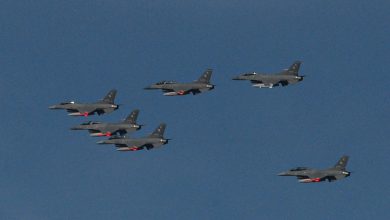Report: US Army Inaugurates New Barracks for Servicemen in South Korea

The US Army Corps of Engineers – Far East District (USACE FED) has opened new barracks for soldiers in Pyeongtaek, South Korea.
Located at Garrison Humphreys, the project is a cooperation between the US and the Republic of Korea Ministry of National Defense – Defense Installation Agency (RoK MND-DIA) to expand accommodations for enlisted American personnel serving a tour of duty in the country without accompanying dependents.
The barracks comprise two eight-story buildings that can each house more than 300 warfighters.
A unit contains two bedrooms and a shared bathroom, kitchenette, and living space. The site’s exterior has four gazebos, a barbecue shelter, and green landscaping.
The army wrote that the towers are compliant with the US Green Building Council’s Leadership in Energy and Environmental Design standards.

“These state-of-the-art facilities would not have been possible without the RoK MND-DIA, whose in-kind funding provided $67 million for this project as part of Camp Humphreys’ transformation, and our teammates at USACE FED who managed the construction,” Garrison Humphreys Commander Col. Ryan Workman stated during the facility’s ribbon-cutting ceremony.
Retaining Quality of Life for Troops
The construction at Garrison Humpreys involved approximately 1.2 million workers and about 1,900 pieces of equipment to complete, according to the MND-DIA Project Management Division.
The army noted that the associated developments were made possible with the help of soldier feedback. Part of this was a visit of the service’s Better Opportunities for Single Soldiers representatives to the site last fall to relay firsthand concerns and suggestions.
Information collected from the troops resulted in actionable changes and included enhancements to minor details of the living quarters.
“These barracks that we are celebrating today are looked at by all levels of the Army as the prime example of high-quality housing for our enlisted personnel,” USACE FED Commander Col. Heather Levy explained.
“As we deliver high quality barracks for our Soldiers here today, we truly see this as a team effort in improving quality of life for the future service members at our installations as well.”





